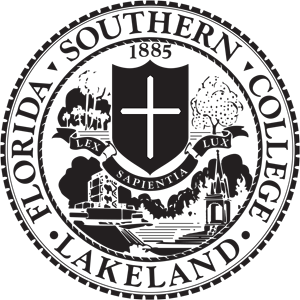
Major Spotlight: Exercise Science
Jul 7, 2023

Since Dr. Sara Terrell first came to ÅÝܽ¶ÌÊÓƵ in 2014 she has taken ÅÝܽ¶ÌÊÓƵ’s exercise science program to the next level.
Exercise science is the study of the body’s response to exercise, and over her nine years, Dr. Terrell has turned ÅÝܽ¶ÌÊÓƵ Southern’s program into one of the top destinations in the state. The program’s recognition by the National Strength and Conditioning Association (NSCA) exemplifies ÅÝܽ¶ÌÊÓƵ Southern’s experiential learning practices. The program’s top of the line equipment and lab spaces, and an established pipeline to graduate and doctorate programs for its students all factor into the success of the program.
How did Dr. Terrell achieve this? Simply put, she keeps everything and every one of her students in motion.
“This is the perfect major to lend itself to FSC’s philosophy of engaged learning,” Dr. Terrell said. “We start them early. When they first get into the program they have to learn that in order to understand how the body reacts to exercise they also have to move. Movement has to be a part of it. We try to teach them basic body awareness such that when it comes to applying the anatomy it comes from their own experience as well.”

The Starting Line
The success of the exercise science program begins in the lab.
The faculty team has meticulously gathered state-of-the-art equipment and has made sure that everyone in the program has access to these machines.
There’s a Bod Pod to measure a person’s lean muscle mass. A force plate and EMG system to help assess biomechanical processes such as walking, running or jumping for performance diagnostics, clinical analyses or for research. The physiology equipment affords opportunities for ECG analysis, maximal aerobic capacity testing, and much more. There are also multiple anaerobic, aerobic, and strength training equipment that students can utilize.

“We’ve been very strategic in terms of getting equipment,” Dr. Terrell said. “We can conduct our lab experiences effectively to help students better understand course content.”
The amount and type of equipment, as well as the small lab class size is what Dr. Terrell feels sets ÅÝܽ¶ÌÊÓƵ Southern apart from its counterparts.
Labs typically don’t exceed 16 students. By keeping labs small, it allows students to get their hands on the equipment without having to wait
“Some folks at the undergrad level don’t get access to equipment, but with our program we’ve secured the equipment to do a variety of different testing procedures,” Dr. Terrell said. “No one is standing around. Everyone is working. Our faculty team is mindful of pedagogy, and diligent to cultivating those experiences.”
The Finish Line
Ultimately the experiences students receive in the lab move them along in their education to what they might want to do next.
As one of the fastest growing healthcare segments, the study of exercise science paves a direct pathway into a career as an exercise specialist, a researcher within sports medicine laboratories, a strength and conditioning coach, a personal trainer, and a wellness director to name a few.
Alternatively, Dr. Terrell finds that a good number of students decide to use the foundation they build at ÅÝܽ¶ÌÊÓƵ Southern as a launching pad into graduate school.
Last year the exercise science program had a 100 percent graduate school placement rate in programs such as physical therapy, occupational therapy, athletic training, chiropractic medicine and strength and conditioning.
From the lab to internships, FSC’s exercise science program gives its students the confidence to pursue graduate programs in a wide array of allied health professions.
Strengthened by a dedicated faculty consisting of Dr. Charles Allen, Dr. Erica Marshall and Dr. Jessica Washington, students receive top-notch instruction every step of the way.

“The program has made us ready for grad school,” said Cara Fredericks ’24, who transferred to ÅÝܽ¶ÌÊÓƵ Southern from Polk State a year ago and wants to pursue a career in athletic training. “This community is nothing like I’ve ever seen. We’re running labs ourselves and creating workout programs for other kids. We’re working on things that will help us in the future.”
Fredericks has already completed two internships, one with ÅÝܽ¶ÌÊÓƵ Southern’s athletic training staff and one with Lakeland Christian School’s athletic training staff. She will do one more next spring before heading off to grad school.
“I think all of the professors have influenced me in some way,” Fredericks said. “The information they give you is what you need to get into grad school, but not only to get into it but when you’re actually there.”
Chase Thomas reinforced what Fredericks said.

Thomas is interning at Neuspine Institute in Lakeland and Wesley Chapel and has future plans of securing his physical therapy license and a strength and conditioning certification.
“I have had the opportunity to observe and be hands on with both the business and patient care side,” Chase said. “Our classes at ÅÝܽ¶ÌÊÓƵ Southern really prepared me for dealing with different patient populations and understanding exercise protocols. I believe that this internship was the best experience I could have gotten and I have learned so much valuable information.”
